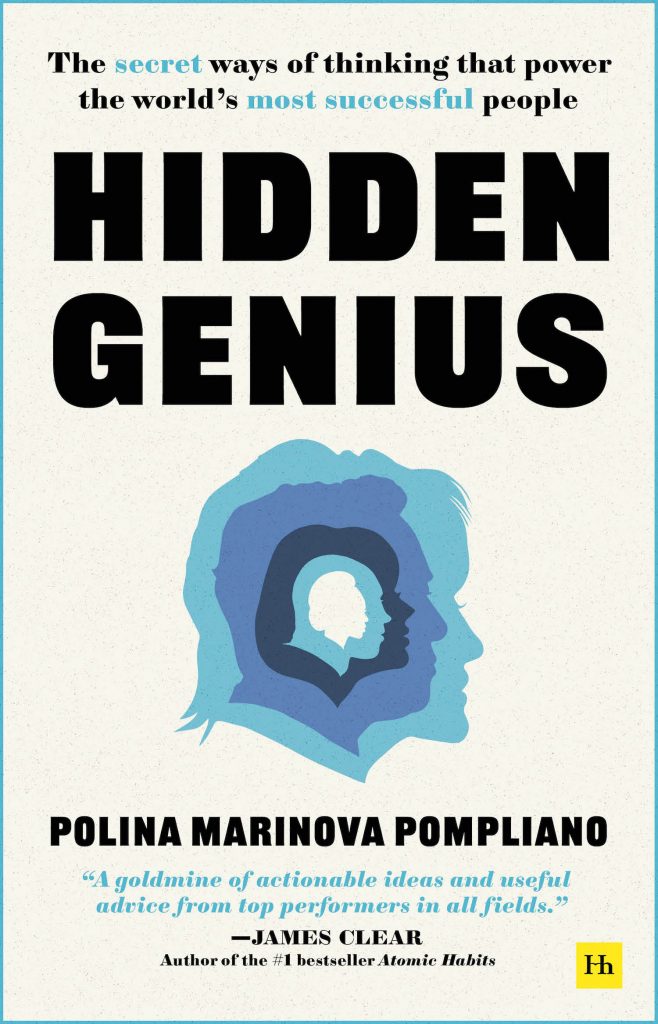Polina Marinova Pompliano is the founder of The Profile, a weekly newsletter that studies some of the world’s most successful and influential people and companies. She began her journalistic career as Editor-in-Chief of The Red & Black at the University of Georgia and has since worked as a producer and writer at CNN and an editor at Fortune magazine.
During her five years at Fortune, Pompliano wrote over 1,300 articles, mostly covering entrepreneurship and venture capital. She also wrote and edited the magazine’s newsletter, Term Sheet, for which she interviewed some of the industry’s leading dealmakers, including Melinda Gates, Steve Case, and more. In 2020, Pompliano left Fortune to focus full-time on The Profile. With over 100,000 followers on Twitter, Pompliano has since made a name for herself in the entrepreneurial world and has garnered a loyal following among both industry professionals and the general public.
After spending years interviewing successful and influential people, Pompliano shares her insight about the habits of the truly exceptional in her debut book, “Hidden Genius: The Secret Ways of Thinking that Power the World’s Most Successful People.”
Read on to learn more about Pompliano’s personal definition of success, how she balances writing and motherhood and whether she’s discovered her own ‘Hidden Genius.’

Q: When were you first inspired to write a book?
A: I always thought I would write a book but it was never my goal. The only reason I wrote this book is because an editor at a publishing house in London saw something I wrote for my newsletter and reached out to me. He suggested I start by sending a summary of the type of book I would write or just the table of contents. Little by little he sucked me in.
The lesson there is everything you put out into the world is a vehicle for serendipity. Whether it’s a newsletter or a project you’re working on, or a company you’re building, take the extra 10 minutes and send it to someone who you think could be helpful because you never know.
Q: Talking about serendipitous moments, you not only wrote a book in a year but also became a new mother. You said you wrote this book “on the edges of time.” How did you balance a newborn and a new book… and did you sleep?
A: I’ve learned that you’re never gonna have time. It’ll never be the perfect time, but you can work on the edges of time. Sofia was three months old, so she wasn’t sleeping and neither was I. One of my friends told me to take 15 minutes and do something that I only do for myself. She meant scrolling through Instagram and TikTok, but I really enjoy writing. So at night, Sofia would sleep from 7 to 9 p.m. before her first wake-up. During that time, I would write. When she woke up, it forced me to leave the desk and let those thoughts marinate.
Q: There are countless quotes throughout the book. One of which was from a UGA journalism professor who told you, “No one is inherently boring. They’re boring because you haven’t asked them the right questions.” Talk us through your interview process.
A: The way I learn is through people and their stories. Every person that I meet, I’m interested in. I don’t just listen to what they say, I look for the subtext. If I asked you about your story, what are you choosing to emphasize and what are you downplaying? Every person is the hero of their journey. We’ve all done stuff that we’re not proud of so if you can look at it from the perspective of other people, maybe you can be a little bit more self-aware.
Q: You said “This book is about learning, not idolizing” — This almost seems like a roadmap for how an individual can live their most creative life. Is this how you also charted your own path to self-discovery?
A: In the book, I talk about how even though I interviewed people who are successful in the traditional sense, I never idolized them. When you idolize someone, you’re worshipping perfect versions of imperfect people. Yes, these are successful people but it’s success in one area. It’s a technique I want to replicate. It’s not their life, it’s not their worldview, or how they conduct themselves.
Q: Several of the people you profiled have the kind of wealth or accomplishment that would leave many others content. What motivates “successful” people to continue to push themselves?
A: Most of the people in the book, the ones that I’ve included, have reinvented. There’s an example in the creativity chapter where I talk about Grant Achatz, one of the most innovative chefs in the country. He makes it to the top and then, of all things, gets stage four tongue cancer. So he started playing with sight and smell to create flavors in a way that he wasn’t able to before.
Constraint breeds activity, but how do you replicate that when you have everything? You have to force yourself into situations that make you uncomfortable because otherwise, you’re gonna stay complacent.
For me, I was kind of in a rut with The Profile because I had been doing it at this point for five years…on a weekly basis. I have never missed a Sunday to Sunday. I felt a little complacent because I was good at it. With this book, it was terrifying. I knew it would be hard starting to write a book with a baby, but I didn’t care. I wanted to do something scary again.
Q: Hidden Genius is comprised of 10 steps to self-discovery. How did you end up deciding on these 10 categories?
A: My biggest problem with most books is that there’s a good message, but it’s mostly theoretical. I really wanted this book to be practical. These categories are just things that I’ve learned that have helped me discover what I’m good at. I hope that I can help people figure that out earlier in life.
Q: You’ve been signing your books: “Bet on yourself.” What does that mean to you?
A: I was never someone who really believed in myself. I always wanted external validation from someone that told me, “You’re gonna make it, it’s going to be okay.” That hit me hard when I graduated from college. I realized that you can do all the right things and make all the right decisions and still not end up where you want to be. When I was working at Fortune, I realized that I started wrapping my identity around external things like a job title again. Being a reporter and editor of Fortune magazine was great but I could also lose that. So I started to realize that I want to bet on myself in some area of my life, where nobody can take that away from me.
Q: One of the most shocking revelations you shared in the book was in the chapter “Clarifying Your Thinking” when you discussed the struggles you had coming over from Bulgaria to the U.S.:
A: I was over-the-top nice, I never had an opinion, and I ate pizza with my bare hands like a savage. I was boring, and it was exhausting… By the time I graduated college, I had friends, I was generally well-liked, and I was never alone. But now, not only did I still feel like an outsider, I also felt like a fraud.
What advice do you think you’ll give Sofia one day when she’s dealing with something similar?
A: I have a theory that if you were born in another country, or even another status bracket, and you make it into a different status bracket/country, you try your best to fit in. In the beginning, I was the “weird kid.” I ate my pizza with a fork and knife. While it was just funny to other kids, I didn’t want to stand out or be the center of attention, so I tried to blend in.
I think if you’re born here, you try to be more independent and embrace those differences, more so than trying to hide them. What I’ve learned is don’t worry, because nobody’s looking at you. Everybody’s just looking at themselves. You can be whoever you want to be.
Q: Describe how it feels, as a writer and mother, to see your book published and in stores.
A: In the tiniest moments, it’s the best feeling in the world. I dedicated this book to my daughter, which if we have other kids that’s really unfortunate for them. But it’s cool because, although she won’t remember this, she was part of the process.
When asked if I wanted to record the audiobook or get a voice actor, I originally thought, “Definitely voice actor, I don’t have the voice for a book.” Then I thought about it. If I could hear the voice of my grandparents who also wrote, that would be awesome. I did it with that in mind. Longevity. 20 people could read the book, but for her, it will live on for generations.
Q: After everything, do you think you have officially discovered your hidden genius?
A: I think it’s an ever-evolving journey. There’s always more work. When people hear that I wrote a book about successful people, the biggest criticism I hear is that it’s just hero worship or survivorship bias. It’s true if you define success in a very traditional way: wealth, money, status, cars. But to me, success doesn’t exist in a vacuum. We all know very successful people who have a shitty personal life. Every chapter in this book is different. There are relationships, leadership and creativity. The reason people are in specific chapters is because they’re not good at other chapters. Everyone can learn from a different chapter because they’re probably not good at everything.
To me, success is a life well lived. There are going to be struggles. But ultimately, it’s about reinvention, getting up again, and realizing that you can do it again and again. My hidden genius is that I can pretty quickly get to the essence of who someone is just because I really, really pay attention to what they’re saying.
Ready to tap into your hidden genius? Get your copy today!
This interview has been edited for length and clarity.

